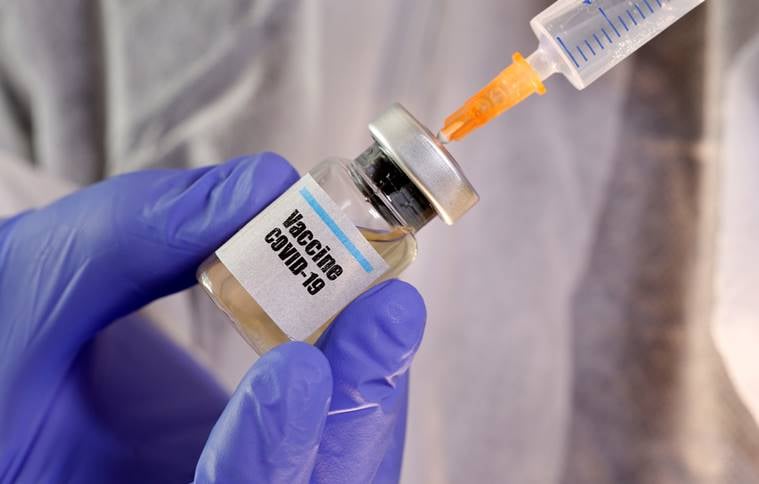DCGI nod to first indigenous pneumonia vaccine: ‘Serum to fulfil global demand of 100 million doses in next two to three years’
The vaccine maker has also partnered with AstraZeneca to support efforts to make a vaccine against Covid-19. Adar Poonawalla, CEO of SII, tells Anuradha Mascarenhas that they will be able to fulfil a global demand of 100 million doses in the next two to three years. Excerpts from an interview:
 According to the WHO, 19 Covid-19 vaccine candidates are in the clinical evaluation stage as of July 6. (Photo: Reuters)
According to the WHO, 19 Covid-19 vaccine candidates are in the clinical evaluation stage as of July 6. (Photo: Reuters)
Serum Institute of India Pvt Ltd — the world’s largest vaccine manufacturer by number of doses produced and sold globally (more than 1.5 billion doses)– has got the go-ahead from Drug Controller and General of India to manufacture its own indigenously developed pneumococcal vaccine. The vaccine maker has also partnered with AstraZeneca to support efforts to make a vaccine against Covid-19. Adar Poonawalla, CEO of SII, tells Anuradha Mascarenhas that they will be able to fulfil a global demand of 100 million doses in the next two to three years. Excerpts from an interview:
Serum Institute of India has become the first to manufacture an indigenously developed pneumococcal vaccine. Earlier, the demand was met by licensed importers in the country since manufacturers were vaccine companies based outside India. How long did the process take?
This is a pneumococcal polysaccharide conjugate vaccine that took five years to develop and conduct multicentric global trials before it was licensed. This is typically how long vaccines normally take. The vaccine is used for active immunisation against invasive disease and pneumonia caused by streptococcus pneumoniae in infants. The Drug Controller General of India (DCGI) looked at evidence from human trials to allow the first fully indigenously developed pneumococcal polysaccharide conjugate vaccine for marketing in India. Serum Institute had first obtained the approval of DCGI to conduct clinical trials in Phases I, II and III. After reviewing clinical data, on July 14, we got permission to manufacture.
According to World Health Organization, pneumonia is the leading cause of death in children worldwide. How many doses will India require?
India requires 70 to 80 million doses. Initially, in the private market, there will be a demand of 10 million doses, of which there are other players like Pfizer, GSK, and there are government tenders, which will probably procure 50 to 60 million doses over the next two to three years. There is also a global demand of another 100 million doses that we will slowly try to fulfil over the next two to three years.
How long before a vaccine against Covid-19 is made available?
It will be a long time before everyone gets a vaccine due to the number of doses that need to be administered. This also includes challenges in administering doses in all parts of the world, and it may not necessarily mean that because the first vaccine is licensed, it is the best one. There are many different scientific approaches being taken to making the Covid-19 vaccine and we will have to wait and watch for the best one.
Serum Institute has also partnered with British drug maker AstraZeneca to support Oxford University’s efforts for a vaccine against Covid-19. How promising are the results of clinical trials?
Among leading vaccine candidates is the AstraZeneca product to which Serum has committed hundreds of millions of dollars. We would not have done so if we did not believe in the AstraZeneca vaccine. Regarding the AstraZeneca product, an announcement will be made in the next two to three days. We should wait for that and then comment on the Phase I trials. I cannot comment on the amount of doses we have made so far, but we plan to make millions over the next three months after we get the manufacturing licence. We have committed hundreds of millions of dollars in Capex and Opex to start producing the vaccine.
VPM1002, which is also produced by Serum Institute of India, is part of clinical trials to assess if these anti-tuberculosis shots can be a game changer in the fight against Covid-19. What is its present status?
The VPM BCG vaccine for tuberculosis is undergoing clinical trials. Over 1,000 patients have been vaccinated and in two months’ time; we will know whether it significantly reduces the severity of Covid-19 or not.








